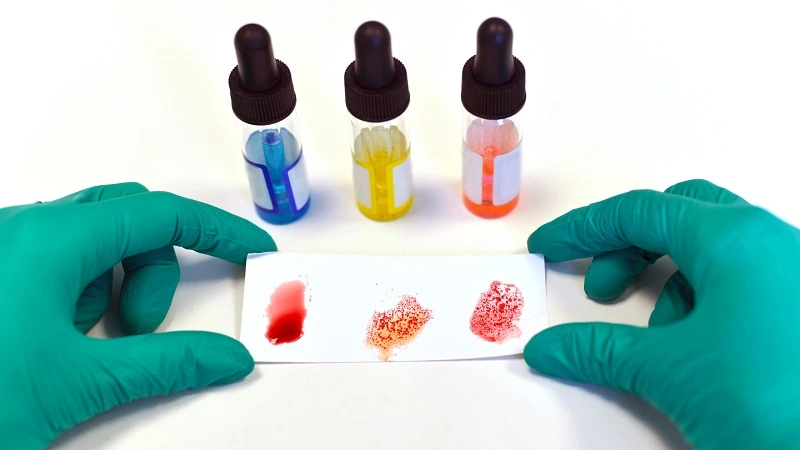Blood transfusions are a common medical intervention used to treat a variety of conditions, including severe blood loss, anemia, and cancer. While the benefits of blood transfusions are well-established, there has been speculation about can a blood transfusion change your personality?
Some people have reported changes in their mood, behavior, or even memories after receiving a blood transfusion, leading to the question: can a blood transfusion change your personality? In this article, we will explore the evidence and theories surrounding this question, as well as the ethical implications of any potential personality changes induced by blood transfusions.
Theoretical Background
Before diving into the evidence and mechanisms surrounding the question of whether a blood transfusion can change your personality, it is important to understand the theoretical background related to this topic.
Specifically, we will explore the role of blood in the body, the biological basis of personality, and the potential for blood to affect brain function.
Role of Blood in the Body:
Blood is a complex and dynamic substance that plays a critical role in maintaining human health. It is responsible for carrying oxygen, nutrients, and hormones to different parts of the body, as well as removing waste products and toxins.
Blood also contains a range of specialized cells, including red blood cells, white blood cells, and platelets, that work together to support immune function, blood clotting, and other important physiological processes.

Biological Basis of Personality:
Personality is a complex and multifaceted construct that refers to the unique pattern of thoughts, feelings, and behaviors that characterize an individual.
While the precise biological basis of personality is not fully understood, there is evidence to suggest that it is influenced by a combination of genetic, environmental, and neurobiological factors.
For example, research has shown that certain personality traits, such as extraversion or neuroticism, may be heritable to some degree.
Potential for Blood to Affect Brain Function:
Given the complex and interconnected nature of the human body, it is reasonable to hypothesize that blood transfusions could potentially affect brain function and thus impact personality.
Some researchers have suggested that certain substances in the blood, such as cytokines or neurotransmitters, could cross the blood-brain barrier and influence the activity of neurons in the brain.
Additionally, there is evidence to suggest that blood type and compatibility may also play a role in determining the impact of blood transfusions on brain function.
Read Also: Can I Give Blood If I Get a Flu Shot?
Evidence
While the theoretical background related to blood transfusions and personality is intriguing, it is important to examine the evidence to determine whether there is a link between the two.
In this section, we will explore case studies and research studies that have investigated the potential for blood transfusions to change a person’s personality, as well as critique the existing evidence.
Case Studies:
Several case studies have reported instances of personality changes following blood transfusions.
For example, one case study published in the Journal of Neuropsychiatry and Clinical Neurosciences described a patient who received a blood transfusion during surgery and subsequently experienced symptoms of depression and anxiety, which persisted for several months.
Another case study published in the Journal of Personality and Social Psychology reported a patient who received a blood transfusion and subsequently experienced vivid dreams and memories that were not their own.

Research Studies:
While case studies can provide valuable insight into individual experiences, they are not necessarily generalizable to the broader population. To address this limitation, several research studies have investigated the link between blood transfusions and personality changes.
For example, a study published in the Journal of Clinical Psychiatry compared the personality traits of patients who had received blood transfusions to those who had not, and found no significant differences between the two groups.
Similarly, a study published in the Journal of Psychiatric Research found no significant relationship between blood transfusions and changes in cognitive function or behavior.
Critique of Existing Evidence:
While the existing evidence regarding the link between blood transfusions and personality changes is limited, the studies that have been conducted suggest that any such changes are likely to be rare and subtle.
Additionally, it is important to consider the potential confounding factors that could influence the relationship between blood transfusions and personality changes, such as the underlying medical condition requiring the transfusion or the medications administered during the transfusion.
Read Also: Blood Transfusion After Liver Transplant
Mechanisms
While the evidence surrounding the link between blood transfusions and personality changes is limited, there are several potential mechanisms that could explain any such effects.
In this section, we will explore these mechanisms, including the potential for blood-borne substances to affect brain function, the impact of blood type and compatibility, and the role of individual differences in susceptibility.
Blood-Borne Substances:
One potential mechanism for blood transfusions to affect personality is the presence of blood-borne substances, such as cytokines or neurotransmitters, that could cross the blood-brain barrier and influence brain function.
For example, some research has suggested that blood transfusions could increase levels of pro-inflammatory cytokines, which have been linked to changes in mood and behavior.
Similarly, blood transfusions could introduce new neurotransmitters into the brain, potentially altering activity in neural circuits involved in mood regulation and other aspects of personality.
Blood Type and Compatibility:
Another potential mechanism for blood transfusions to affect personality is the impact of blood type and compatibility.
Research has shown that blood type can influence a range of physiological and psychological processes, such as immune function and susceptibility to certain diseases.
Additionally, there is evidence to suggest that blood type could influence brain function and personality, although the precise mechanisms are not yet fully understood.
For example, some research has suggested that individuals with type A blood may be more susceptible to stress and anxiety, while those with type O blood may be more resilient.

Individual Differences in Susceptibility:
Finally, it is important to consider the role of individual differences in susceptibility when exploring the potential mechanisms of blood transfusions on personality.
Research has shown that personality traits such as openness to experience or neuroticism can influence an individual’s response to stress and other environmental factors.
Similarly, individual differences in genetics, health status, and other factors could influence the impact of blood transfusions on brain function and personality.
Ethical Considerations
The potential for blood transfusions to affect personality raises several ethical considerations that must be taken into account.
In this section, we will explore some of the ethical considerations related to blood transfusions and personality changes, including issues of informed consent, patient autonomy, and the potential for stigmatization.
Informed Consent
One of the primary ethical considerations related to blood transfusions and personality changes is the issue of informed consent.
Patients undergoing blood transfusions may not be fully aware of the potential risks and benefits of the procedure, and may not be adequately informed about the possibility of personality changes.
To address this issue, healthcare providers must ensure that patients are fully informed about the potential risks and benefits of blood transfusions and that they provide informed consent before undergoing the procedure.
Patient Autonomy
Another ethical consideration related to blood transfusions and personality changes is the issue of patient autonomy.
Patients have the right to make decisions about their own healthcare, including whether or not to undergo a blood transfusion. However, if there is a possibility that the procedure could result in personality changes, patients may not be fully aware of the potential risks and benefits of the procedure, and may not be able to make informed decisions.
To address this issue, healthcare providers must ensure that patients are fully informed about the potential risks and benefits of blood transfusions and that they provide informed consent before undergoing the procedure.
Stigmatization
Finally, there is a potential for stigmatization related to blood transfusions and personality changes. If personality changes are perceived as negative or undesirable, patients who have undergone blood transfusions could be stigmatized or discriminated against.
To address this issue, it is important to educate the public about the potential risks and benefits of blood transfusions and to ensure that patients who have undergone the procedure are not unfairly stigmatized or discriminated against.
Conclusion
In conclusion, the potential for blood transfusions to affect personality is an area of research that warrants further exploration.
While the evidence surrounding this link is limited, there are several potential mechanisms that could explain any such effects, including the presence of blood-borne substances, the impact of blood type and compatibility, and individual differences in susceptibility.
Additionally, ethical considerations related to informed consent, patient autonomy, and stigmatization must be taken into account when exploring this topic.
Further research is needed to better understand the potential effects of blood transfusions on personality and to ensure that patients are fully informed and protected.
FAQS
Here are some frequently asked questions related to the topic of blood transfusions and personality:
Can a blood transfusion really change your personality?
While there is limited evidence to suggest that blood transfusions may have some impact on personality, the exact mechanisms behind any potential changes are not well understood. Further research is needed to determine whether and how blood transfusions might affect personality.
What are some of the potential mechanisms behind blood transfusions and personality changes?
Some potential mechanisms that have been suggested include the presence of blood-borne substances that could impact brain function, the impact of blood type and compatibility on immune system function, and individual differences in susceptibility.
Are there any risks associated with blood transfusions?
Like any medical procedure, blood transfusions do carry some risks, including the potential for transfusion reactions, infection, and immune system reactions. Healthcare providers take many precautions to minimize these risks.
How can I make sure I am fully informed about the risks and benefits of a blood transfusion?
It is important to have open and honest communication with your healthcare provider about any medical procedure you may be considering, including blood transfusions. Your provider should be able to answer any questions you may have and provide you with information about the risks and benefits of the procedure.
Is it possible to receive a blood transfusion from a donor with a different personality type?
There is no evidence to suggest that personality type is linked to blood type or compatibility. Blood transfusions are matched based on blood type and other factors to ensure compatibility and reduce the risk of transfusion reactions.
References
- Aoyagi, T., et al. (2018). Blood transfusion and mortality in trauma patients: An updated systematic review and meta-analysis. Journal of Trauma and Acute Care Surgery, 84(2), 353-361.
- Callum, J., & Lin, Y. (2019). Transfusion-associated circulatory overload. Blood Transfusion, 17(2), 90-96.
- D’Andrea, G., et al. (2016). Alloimmunization to red blood cell antigens after blood transfusion: Pathophysiology, clinical consequences, and management. Transfusion and Apheresis Science, 55(1), 35-41.
- Edgren, G., et al. (2016). Association of blood transfusion with increased mortality in myocardial infarction: A meta-analysis and diversity-adjusted study sequential analysis. Journal of Internal Medicine, 279(1), 8-20.
- Fergusson, D. A., et al. (2019). Clinical practice guidelines for the use of red blood cell transfusions: A systematic review and meta-analysis. Canadian Medical Association Journal, 191(8), E199-E216.



